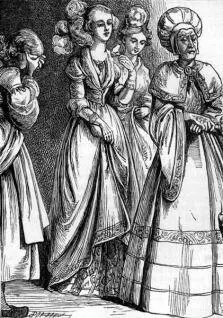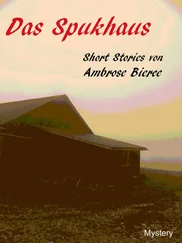Ambrose Bierce - Cobwebs from an Empty Skull
Здесь есть возможность читать онлайн «Ambrose Bierce - Cobwebs from an Empty Skull» весь текст электронной книги совершенно бесплатно (целиком полную версию без сокращений). В некоторых случаях можно слушать аудио, скачать через торрент в формате fb2 и присутствует краткое содержание. Жанр: Юмористическая проза, Классическая проза, на английском языке. Описание произведения, (предисловие) а так же отзывы посетителей доступны на портале библиотеки ЛибКат.
- Название:Cobwebs from an Empty Skull
- Автор:
- Жанр:
- Год:неизвестен
- ISBN:нет данных
- Рейтинг книги:4 / 5. Голосов: 1
-
Избранное:Добавить в избранное
- Отзывы:
-
Ваша оценка:
- 80
- 1
- 2
- 3
- 4
- 5
Cobwebs from an Empty Skull: краткое содержание, описание и аннотация
Предлагаем к чтению аннотацию, описание, краткое содержание или предисловие (зависит от того, что написал сам автор книги «Cobwebs from an Empty Skull»). Если вы не нашли необходимую информацию о книге — напишите в комментариях, мы постараемся отыскать её.
Cobwebs from an Empty Skull — читать онлайн бесплатно полную книгу (весь текст) целиком
Ниже представлен текст книги, разбитый по страницам. Система сохранения места последней прочитанной страницы, позволяет с удобством читать онлайн бесплатно книгу «Cobwebs from an Empty Skull», без необходимости каждый раз заново искать на чём Вы остановились. Поставьте закладку, и сможете в любой момент перейти на страницу, на которой закончили чтение.
Интервал:
Закладка:
The invitations stated that at the proper hour the old original Sultana would call personally, and conduct the young ladies to the palace; and she did so. They thought, at the time, she bore a striking resemblance to a Grand Vizier with his beard shaven off, and this led them into some desultory reflections upon the sin of nepotism and family favour at Court; but, like all moral reflections, these came to nothing. The old original Sultana's attire, also, was, with the exception of a reticule and fan, conspicuously epicene; but, in a country where popular notions of sex are somewhat confused, this excited no surprise.
As the three marched off in stately array, poor little deserted Pollimariar stood cowering at one side, with her fingers spread loosely upon her eyes, weeping like-a crocodile. The Sultana said it was late; they would have to make haste. She had not fetched a cab, however, and a recent inundation of dogs very much impeded their progress. By-and-by the dogs became shallower, but it was near eleven o'clock before they arrived at the Sublime Porte-very old and fruity. A janizary standing here split his visage to grin, but it was surprising how quickly the Sultana had his head off.
Pretty soon afterwards they came to a low door, where the Sultana whistled three times and kicked at the panels. It soon yielded, disclosing two gigantic Nubian eunuchs, black as the ace of clubs, who stared at first, but when shown a very cleverly-executed signet-ring of paste, knocked their heads against the ground with respectful violence. Then one of them consulted a thick book, and took from a secret drawer two metal badges numbered 7,394 and 7,395, which he fastened about the necks of the now frightened girls, who had just observed that the Sultana had vanished. The numbers on the badges showed that this would be a very crowded ball.
The other black now advanced with a measuring tape, and began gravely measuring Djainan from head to heel. She ventured to ask the sable guardian with what article of dress she was to be fitted.
"Bedad, thin, av ye must know," said he, grinning, "it is to be a sack ."
"What! a sacque for a ball?"
"Indade, it's right ye are, mavourneen; it is fer a ball-fer a cannon-ball-as will make yer purty body swim to the bothom nately as ony shtone."
And the eunuch toyed lovingly with his measuring-tape, which the wretched girls now observed was singularly like a bow-string.
"O, sister," shrieked Djainan, "this is-"
"O, sister," shrieked Djulya, "this is-"
"That horrid-"
"That horrid-"
"Harem!"
It was even so. A minute later the betrayed maidens were carried, feet-foremost-and-fainting, through a particularly dirty portal, over which gleamed the infernal legend: "Who enters here leaves soap behind!" I wash my hands of them.

Next morning the following "personal" appeared in the "Levant Herald:"
"P-ll-m-r-r.-All is over. The S-lt-n cleared his shelves of the old stock at midnight. If you purchased the Circ-n B-ties with the money I advanced, be sure you don't keep them too long on hand. Prices are sure to fall when I have done buying for the H-r-m. Meet me at time and place agreed upon, and divide profits. G-d V-r."
JOHN SMITH.
At the quiet little village of Smithcester (the ancient London) will be celebrated to-day the twentieth, centennial anniversary of this remarkable man, the foremost figure of antiquity. The recurrence of what, no longer than six centuries ago, was a popular fête day, and which even now is seldom allowed to pass without some recognition by those to whom the word liberty means something more precious than gold, is provocative of peculiar emotion. It matters little whether or no tradition has correctly fixed the date of Smith's birth; that he was born-that being born he wrought nobly at the work his hand found to do-that by the mere force of his intellect he established our present perfect form of government, under which civilization has attained its highest and ripest development-these are facts beside which a mere question of chronology sinks into insignificance.
That this extraordinary man originated the Smitharchic system of government is, perhaps, open to honest doubt; very possibly it had a de facto existence in various debased and uncertain shapes as early as the sixteenth century. But that he cleared it of its overlying errors and superstitions, gave it a definite form, and shaped it into an intelligible scheme, there is the strongest evidence in the fragments of twentieth-century literature that have descended to us, disfigured though they are with amazingly contradictory statements of his birth, parentage, and manner of life before he strode upon the political stage as the liberator of mankind. It is stated that Snakeshear-one of his contemporaries, a poet whose works had in their day some reputation (though it is difficult to say why)-alludes to him as "the noblest Roman of them all;" our ancestors at the time being called Englishmen or Romans, indifferently. In the only fragment of Snakeshear extant, however, we have been unable to find this passage.
Smith's military power is amply attested in an ancient manuscript of undoubted authenticity, which has just been translated from the Japanese. It is an account of the water-battle of Loo, by an eyewitness whose name, unfortunately, has not reached us. In this battle it is stated that Smith overthrew the great Neapolitan general, whom he captured and conveyed in chains to the island of Chickenhurst.
In his Political History of the Twentieth Century, the late Mimble-or, as he would have been called in the time of which he writes, Mister Mimble-has this luminous sentence: "With the single exception of Coblentz, there was no European government the Liberator did not upset, and which he did not erect into a pure Smitharchy; and though some of them afterward relapsed temporarily into the crude forms of antiquity, and others fell into fanciful systems begotten of the intellectual activity he had stirred up, yet so firmly did he establish the principle, that in the Thirty-second Century the enlightened world was, what it has since remained, practically Smitharchic."
It may be noted here as a curious coincidence, that the same year which saw the birth of him who established rational government witnessed the death of him who perfected literature. In 1873, Martin Farquhar Tupper-next to Smith the most notable name in history-died of starvation in the streets of London. Like that of Smith, his origin is wrapped in profoundest obscurity. No less than seven British cities claimed the honour of his birth. Meagre indeed is our knowledge of this only bard whose works have descended to us through the changes of twenty centuries entire. All that is positively established is that during his life he was editor of "The Times 'magazine,'" a word of disputed meaning-and, as quaint old Dumbleshaw says, "an accomplished Greek and Latin scholar," whatever "Greek" and "Latin" may have been. Had Smith and Tupper been contemporaries, the iron deeds of the former would doubtless have been immortalized in the golden pages of the latter. Upon such chances does History depend for her materials!
Strangely unimpressible indeed must be the mind which, looking backward through the vista of twenty centuries upon the singular race from whom we are supposed to be descended, can repress a feeling of emotional interest. The names of John Smith and Martin Farquhar Tupper, blazoned upon the page of the dim past, and surrounded by the lesser names of Snakeshear, the first Neapolitan, Oliver Cornwell, Close, "Queen" Elizabeth, or Lambeth, the Dutch Bismarch, Julia Cæsar, and a host of contemporary notables are singularly suggestive. They call to mind the odd old custom of covering the body with "clothes;" the curious error of Copernicus and other wide guesses of antique "science;" the lost arts of telegramy, steam locomotion, and printing with movable types; and the exploded theory of gunpowder. They set us thinking upon the zealous idolatry which led men to make pious pilgrimages to the then accessible regions about the North Pole and into the interior of Africa, which at that time was but little better than a wilderness. They conjure up visions of bloodthirsty "Emperors," tyrannical "Kings," vampire "Presidents," and useless "Parliaments"-strangely horrible shapes contrasted with the serene and benevolent aspect of our modern Smithocracy!
Читать дальшеИнтервал:
Закладка:
Похожие книги на «Cobwebs from an Empty Skull»
Представляем Вашему вниманию похожие книги на «Cobwebs from an Empty Skull» списком для выбора. Мы отобрали схожую по названию и смыслу литературу в надежде предоставить читателям больше вариантов отыскать новые, интересные, ещё непрочитанные произведения.
Обсуждение, отзывы о книге «Cobwebs from an Empty Skull» и просто собственные мнения читателей. Оставьте ваши комментарии, напишите, что Вы думаете о произведении, его смысле или главных героях. Укажите что конкретно понравилось, а что нет, и почему Вы так считаете.





